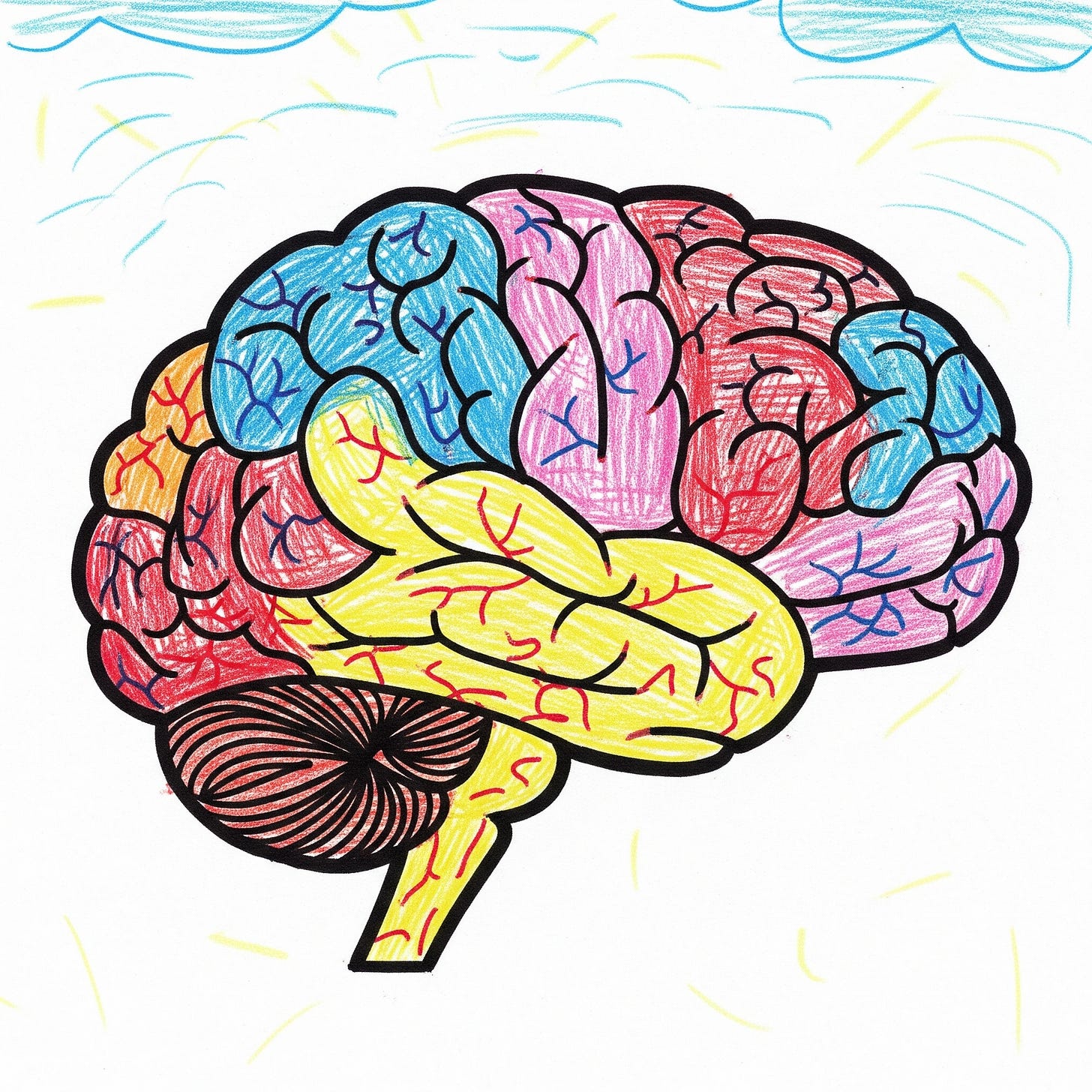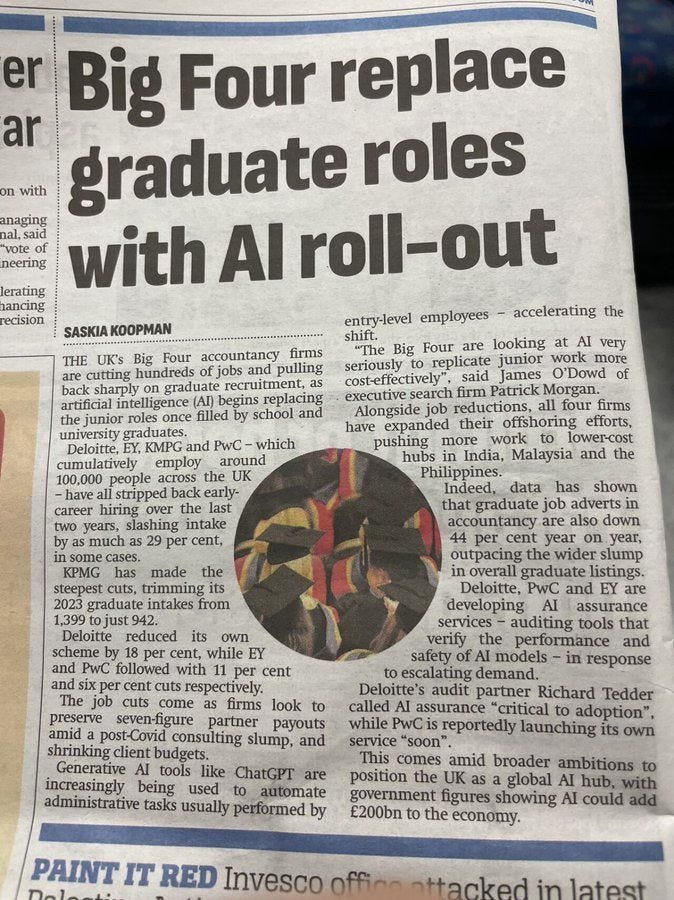5 AI things this month to read or watch:
5 things I should have written about, may have written about, might write about - but wanted to put here.
AI solves behavioural psychology.
This research is wild. I just don't have more words for it. Except for everyone who has a zero day mentality and says things like "Well, it's not very good." Of course not, but it won't get worse. It will be better. Anyway science is solving us.. or at least how we are likely to behave, react, decide. And that. is. wild.
In a narrow LLM trained on thousands of psychological experiments researchers have built a model that mimics human decision-making in the same way that ChatGPT originally mimicked conversational patterns. The results, published in Nature, show that in games and basic tests it got the things that humans got right correct, but more importantly the AI got the things we got wrong, wrong. It failed the test where humans failed the test.. reliably. In other words, this is a model that (will become) a far better mirror for predicting human behaviour than a tool that optimises for the right answer every time.
Researchers claim their ai model simulates human mind, others are skeptical
A foundation model to predict and capture human cognition
Human culture & taste has nothing to do with AI

I always recommend the Atlantic but I don't actually recommend this article. It's interesting but mainly because of the fallacies - it is popular because it equates taste as being challenged by AI, when in fact that 'revolution' occurred due to the internet and social media breaking down the barriers of “taste” maintained by structural gatekeepers and democratising cultural output AND critique. It has nothing to do with "AI slop" and also shouldn't be coming from business leaders when we have an culture sector and an academic field of humanities dedicated to this. Stay in your lane business folk!
# Good Taste Is More Important Than Ever
What should we do? Train as a plumber.
If you haven't listened to this incredible, disturbing scoop of a podcast by Diary of a CEO then you just have to. It starts strong, sustains, and then really ramps up at the end. It's not comfortable but it is essential listening.
A kind of end-of-days mea culpa from the man who fundamentally altered AI by pursuing the once impossible idea of neural nets as a cornerstone of AI development and is therefore known (completely correctly) as the godfather of AI. Geoffrey Hinton is a brilliant, and lovely man, and his advice for the next generation? Train to be a plumber. Seriously.
# Godfather of AI: I Tried to Warn Them, But We've Already Lost Control! Geoffrey Hinton
Why we can't have nice things - History visualised by AI
If your preference is for outrage - get outraged by humans, not AI. This low-key brilliant video of Achilles(??) streaming the Trojan war was picked up on linkedin as a way to teach history. Interestingly it appears to have been taken off the internet pretty much everywhere else. As my 11 year old knows - the Iliad & the Odyssey are poetry not history. AI knows this too. I'm pretty sure the video creators knew this. The only people who don't seem to know this are Founders & CEO’s who then spread ‘miseducation’ (?) because this is an "amazing" way to teach history.
This has been a concern amongst actual historians for at least 3 years. I'm intrigued that this video has all but disappeared. However I'm not posting the video (except I am ;) - I'm posting the post, and the comments. On a public platform. [tbh it is still quite amusing when we celebrate our own ignorance with emojis.] The video is fun though. There is a superb joke in the last frame that I truly hope is AI generated.
Also this wasn't made in Veo.. it was made in China.
Some 'journalism' you have to double check - like early AI.
AI laddering is starting and, well, it couldn't happen to a nicer bunch.
Let's talk about KPMG. In news here in Australia people are beginning to notice that the government are paying $500m to KPMG to advise on AI strategy despite a pretty shocking internal policy on AI use (and all the accompanying idiocy that one might expect). Back in the UK in a predictable and illuminating example of "the absolutely worst way to integrate AI into your business" we now get headlines like:
Beyond the idiocy - this is an elegant example of the 'laddering' concept that I've been on about since 2017 - where we can see an entire rung of the skills ladder removed with the direct consequence that any requirement for more labour at a higher skill level requires applicants to magically leap a rung, and somehow acquire the skills that being a low-level employee currently provides through proximity or on the job training. So smart but so dumb.
Tea Uglow advises businesses and boards on innovation and AI strategy. Mainly how to bring their workforce with them and make the most of the opportunities ahead.







Interesting section on taste… isn’t taste a deeply personal thing and can’t be limited to those from specific sectors?